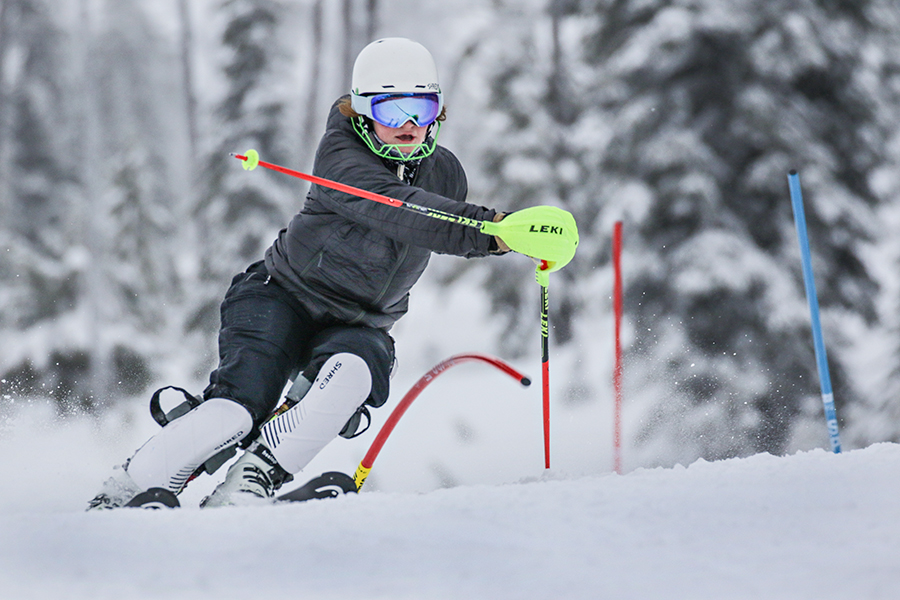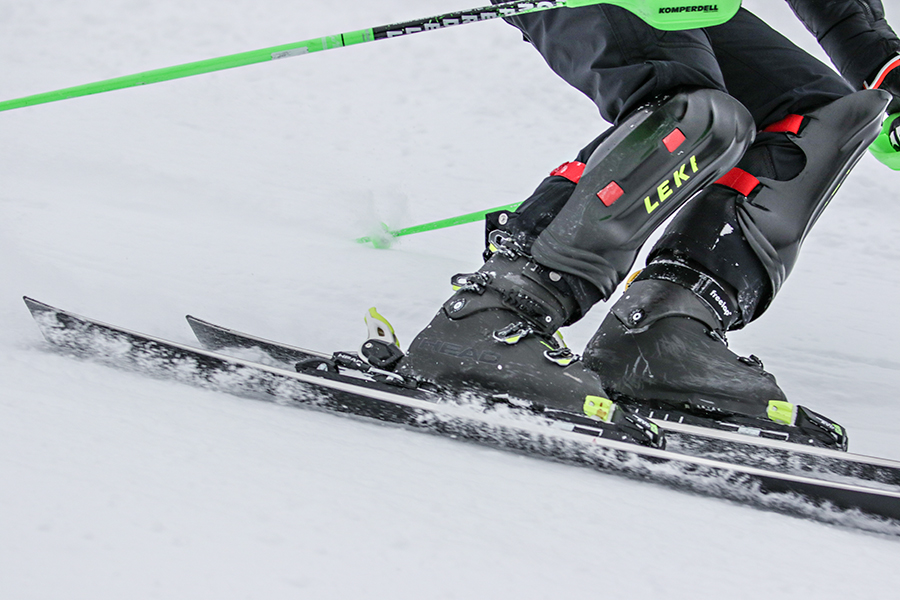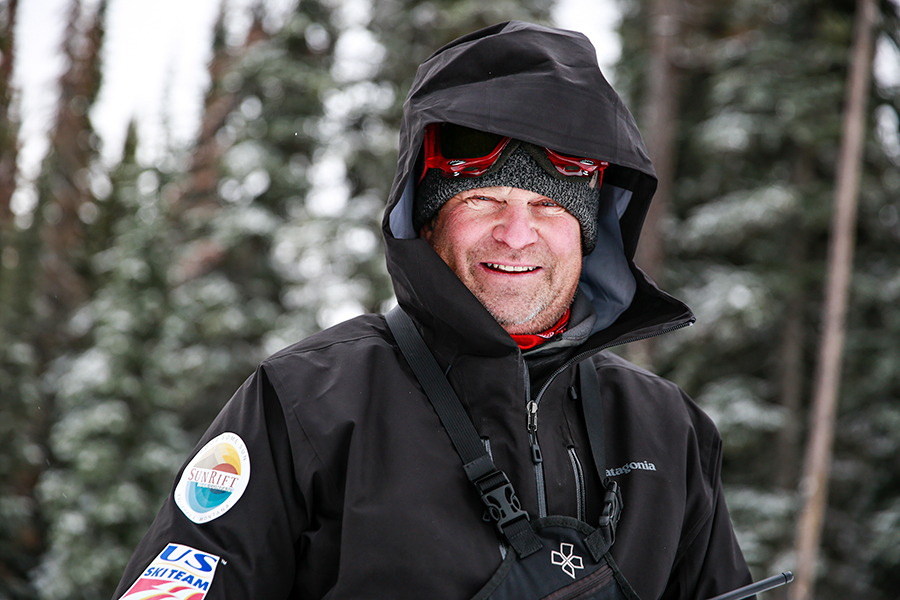The Growing Orbit of MARS
Montana Alpine Race School (MARS) had setbacks to hosting its first race, but continues to expand competitive opportunities for skiers of all ages and abilities
By Micah Drew
“It was kind of a funny year in every way you look at it,” Montana Alpine Race School (MARS) head coach John Steitz said, speaking on a day that he planned to be watching his athletes compete in the first race hosted at Blacktail Mountain Ski Area.
Blacktail was supposed to host a four-day race on Jan. 14-17 in collaboration with the Flathead Valley Ski Education Foundation (FVSEF), but the race was canceled due to health concerns associated with ski racers and their families descending on Lakeside for the better part of a week during a pandemic.
The decision to cancel the race ended up having a slim silver lining.
A major windstorm that tracked across the Northwest Montana the day before the race would have taken place left thousands of homes and businesses without power, including Blacktail. It’s hard to hold a ski race when the lifts aren’t spinning.
“I guess it kind of worked out, because we wouldn’t have been able to host the race even if everyone had been able to come,” Steitz said. “It’s better that no one came than having everyone here and unable to do anything but stay in their hotels.”

In order for a mountain to host a race sanctioned by the International Ski Federation (FIS) and U.S Ski & Snowboard, the courses needs to undergo homologation, the certification process required by the sports’ governing bodies.
For years, MARS co-founder and foundation president Bill Metzler fielded calls from clubs around the Northwest U.S. asking when Blacktail was going to become homologated. Last fall, the mountain finally began the process, spurred by the prospect of jointly hosting a race with FVSEF over the winter.
“As soon as I said yes, we’ll do the race, then my thought a half hour later was, ‘What did I just bite off?’” Metzler said.
Usually the homologation process is a year-and-a-half endeavor, requiring significant amounts of money, paperwork and the painstaking certification process itself, which requires one of a handful of qualified inspectors to measure each run.
Metzler and Steitz went to the community to raise the money and were blown away by the immediate outpouring of support. Metzler managed to get Blacktail on the schedule of inspector Paul Mahre to officially approve the mountain in October, before COVID-related delays pushed that to December and then again to January.
“COVID got ugly, people took precautions and the next thing you know, we’re certifying the course a week before we’re supposed to race,” Steitz said.
Despite the setbacks, Blacktail got four of its runs certified, as well as World Cup-caliber timing and safety equipment purchased.
“We might try to reschedule, but there’s only so many weeks in the winter,” Steitz said. “But now we’re ready for future races.”

Steitz has been coaching for more than 40 years, spending most of that time near Lake Placid, the site of the 1980 Winter Olympics. When he moved to Montana, he started working with FVSEF at Whitefish Mountain Resort before thinking about creating a world-class training program at a mountain without the challenging logistics and crowds present at larger ski resorts.
Blacktail had various competitive clubs over the years, but the combined efforts of Metzler and Steitz made the latest iteration different when MARS took off in 2016.
“They’ve given us some wonderful opportunities down here,” Steitz said. “The atmosphere is good, the terrain is great and because there’s less people, there’s less distractions for the athletes, and that’s a big plus.”
The competitive group is small — there are currently only three U16 girls on the junior race team — but slowly expanding with a new program that launched this year called the Rockets, aimed at local kids ages 6-7.
“I just thought, what a neat program, what a way to give back to the families at Blacktail,” Steitz said. “These kids are the new MARS. They’re a cute little bunch and they’re rising up.”
The new Rockets give MARS a full generational spread, as the organization also boasts a robust masters group that has produced world champions in recent years.
“It really brings a unique dynamic to see that vast spread of ages,” Metzler said.
Steitz emphasizes that while the goal is to create a world-class training environment, the only thing he truly knows as a coach is that the real goal is to make athletes want to come back the next day.
“Really, it’s about learning to ski. To ski like a ski racer is just a really good core,” Steitz said. “We don’t know where these kids will go. Some will go into racing, some will go into freestyle, some will go into big mountains and some will go into Nordic, but the basics are all there.”